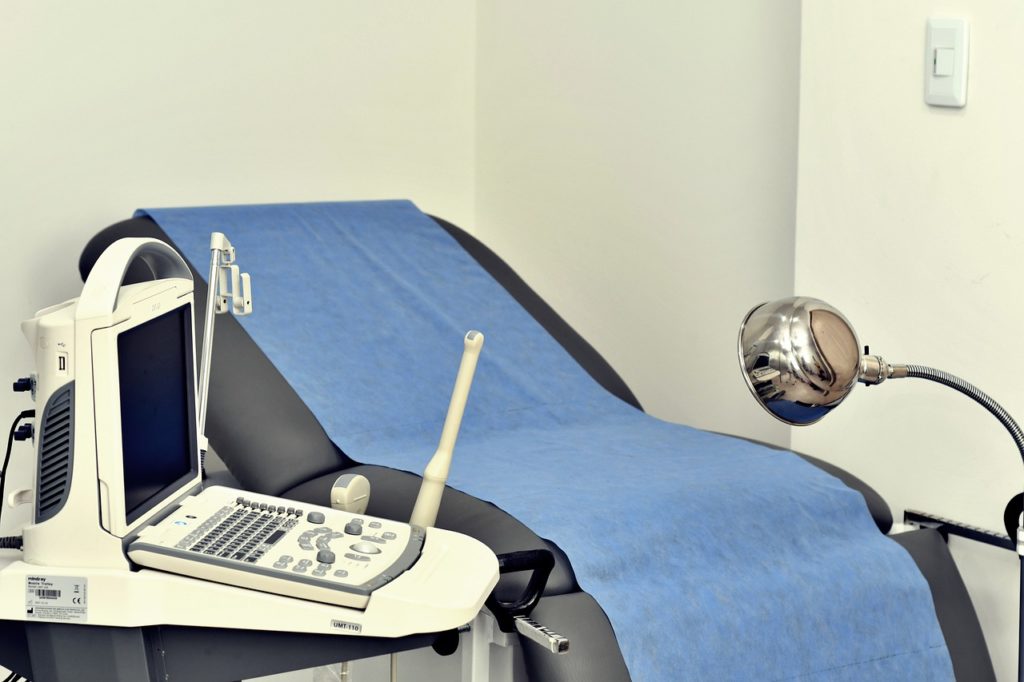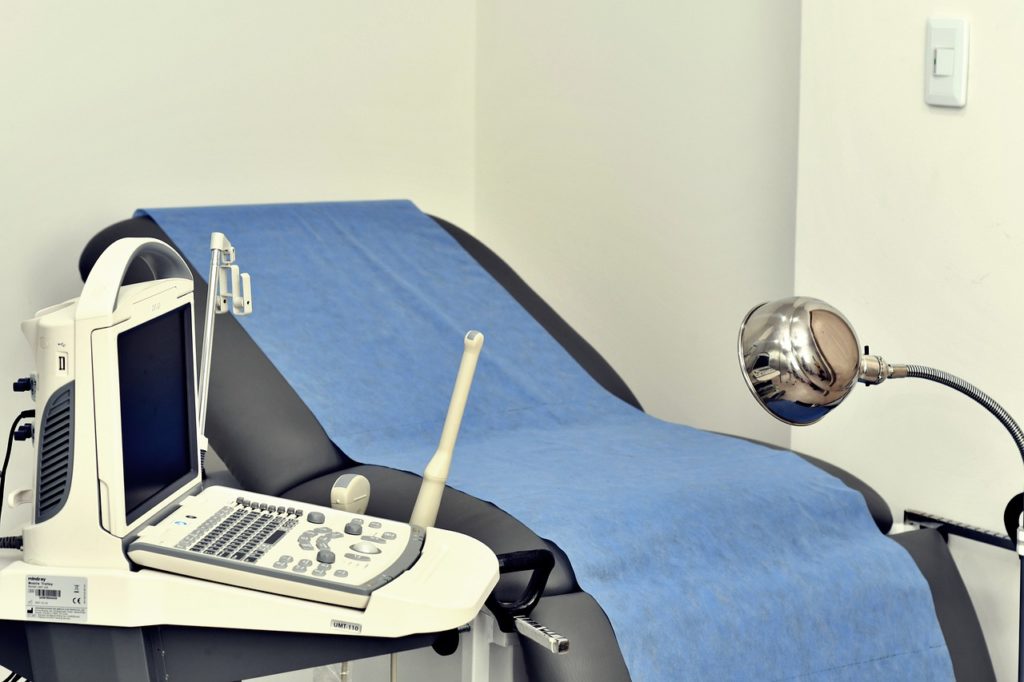This article contains descriptions of sexual abuse which may be upsetting to some readers. If you or a loved one is concerned that the behavior of your gynecologist may not have been appropriate, contact our experienced and compassionate sexual assault lawyers for a confidential consultation today.
Going to the gynecologist is an important part of women’s healthcare. It can be a nerve-wracking experience for many women, especially if it’s their first time. While gynecologists are medical professionals who are trained to provide necessary care and treatment for women’s reproductive health, unfortunately, there have been cases of inappropriate behavior by some healthcare providers in this field.
Most notably, Robert Hadden was accused of sexually abusing multiple patients. In 2016, he was charged with six counts of sexual abuse and pleaded guilty to two of the charges, which included the sexual abuse of two patients. He was sentenced to only two years in prison and was released after 18 months, which sparked outrage among the victims and the public. In 2020, a federal indictment was brought against him, charging him with additional counts of sexual assault, including one count of sexual abuse of a minor. The case brought attention to the issue of sexual misconduct by healthcare professionals and highlighted the need for better safeguards to protect patients.
Hadden’s patients each entered the examination room with an understanding that their doctor is obligated to follow strict procedure. Despite this obligation, Hadden systematically abused his position as a practicing doctor for his own sadistic gain.
Sadly, Robert Hadden is not the only doctor to use their status and power to abuse patients.
By being aware of what is and isn’t acceptable, women can ensure they receive the proper care they deserve during their gynecological exams.

Hadden’s patients each entered the examination room with an understanding that their doctor is obligated to follow strict procedure. Despite this obligation, Hadden systematically abused his position as a practicing doctor for his own sadistic gain.
Cases like this highlight the importance of knowing what to expect during a routine gynecologist appointment. Survivors of sexual misconduct are never to blame for the wrongs committed against them.
Understanding what should and should not happen during an appointment with an OB/GYN can help women identify when behavior by a gynecologist, nurse, or other medical professional crosses the line.
What is a Gynecologist?
A gynecologist is a doctor who specializes in the health of the female reproductive system (the vagina, uterus, and ovaries) and the breasts. A gynecologist who also treats pregnant women (the practice of “obstetrics”) may be referred to as an obstetrician/gynecologist or an “OB/GYN.” This type of doctor may also be referred to informally as a “gyno.”
What Happens during a Routine Gynecologist Appointment?
During a routine gynecologist appointment, your doctor will gather information about your health and perform tests. These tests are either recommended by medical associations based on your age and symptoms or they are performed at your request. Your doctor may prescribe medication and make recommendations about birth control, safe sex, and other health matters.

Gathering Information During an OB/GYN Exam
At the beginning of the appointment, your gynecologist will ask you about several things, including:
- your menstrual cycle
- the date of your most recent period
- sexual activity
- new sexual partners
- birth control methods (if applicable)
Your gynecologist may ask a nurse or physician’s assistant to help in gathering this basic information. In addition, your gynecologist will ask about any health concerns, including pain or other potential symptoms of illness or medical condition. This information should be gathered in a professional, clinical manner so as to provide you with effective and targeted treatment.
Types of Routine Gynecological Exams
The tests performed during a visit to a gynecologist will vary based on your age, sexual activity and history, and any specific health concerns. During tests which require the gynecologist to make physical contact with you, your doctor should wear a sterile pair of latex or nitrile gloves.
A gynecologist may perform a manual breast exam to check for lumps, masses, or any abnormal tissue. This test is typically very quick and involves gently pressing on and examining the breast tissue using the fingers and hands. During this time, the doctor may ask whether you perform monthly self-breast exams, which are recommended for early breast cancer detection.
The gynecologist may also perform a test known as a Pap smear. This test screens for abnormal cell growth on the cervix, which may be a sign of cervical cancer.
A test for Human Papillomavirus (or “HPV”) may be performed simultaneously if you request it, show symptoms of HPV, or are sexually active and over a certain age.
During this test, you will lie on your back on the examination table and place your feet in stirrups. The gynecologist will use a tool called a “speculum” to open the vagina wide enough for insertion of a swab to gently scrape cells from the cervix.
Depending on your age and any specific health concerns, your gynecologist may perform a pelvic exam. During the exam, the doctor may use a speculum to aid in the performance of a manual examination of the vagina and cervix.
The doctor will insert one or two gloved fingers from one hand inside the vagina and firmly press on your abdomen using the other hand.
The purpose of this exam is to determine whether there are any potential issues with your vagina, uterus, and other reproductive organs. This test helps the doctor detect any abnormalities or potential signs of cancer.
What Should Never Happen During a Gynecological Exam?
Gynecologists receive extensive training on how to perform an appropriate exam. Such an exam should never include any sexually provocative remarks, flirtation, or sexual contact with the patient.
Here are some behaviors that may indicate a gynecologist has violated medical and ethical standards, and potentially committed sexual assault:
- Being alone with you while you are undressed. Although it is ultimately up to the gynecologist’s judgment and availability of other office staff members, most gynecologists choose not be alone in the room with an undressed patient to avoid making her feel uncomfortable. Depending on availability, a nurse or physician’s assistant may be present during the types of exams discussed above, unless you specifically requests to speak to the doctor privately.
- Make prolonged contact with sensitive areas or engage in sexual activity. Unless a specific cause for concern is identified during a breast exam, Pap smear, or vaginal exam, your doctor should not make prolonged contact with your breasts or vagina. Sexual activity between a gynecologist and patient is never appropriate and likely violates civil and criminal law.
- Make inappropriate sexual innuendo or flirtatious comments. During a routine exam, a gynecologist may make remarks such as “your breast tissue seems healthy” or “no cause for concern” after your pelvic exam. Any further remarks (such as “your breasts are really perky” or “you have an amazing body”) are not appropriate.
- Taking pictures of your breasts, genitals, or naked body. Photos of patients during routine gynecological exams are almost never necessary. If any unusual symptoms are noticed, your doctor should note this in your medical file and follow up with appropriate tests. Absent any serious health conditions with visible physical symptoms, a gynecologist should never photograph your breasts, genitals, or naked body. Even in a rare case where photos of visible symptoms may be beneficial to your doctor’s ability to treat you, your gynecologist cannot take a photograph without your explicit permission.
- Performing procedures without consent, or while you are unconscious without your consent given prior to administering anesthesia.
If you believe that a gynecologist has engaged in inappropriate sexual conduct, sexual assault, or rape during an exam, you may have legal recourse against the abuser and his or her employer.
To talk with an experienced New York sexual assault lawyer who represents victims in these types of cases, call Merson Law PLLC today.








